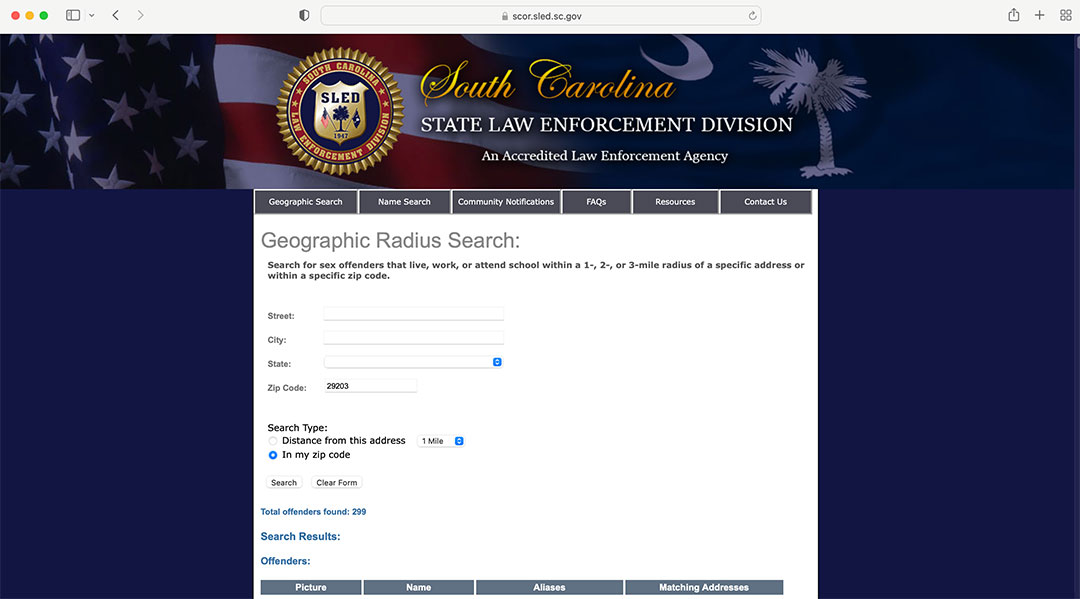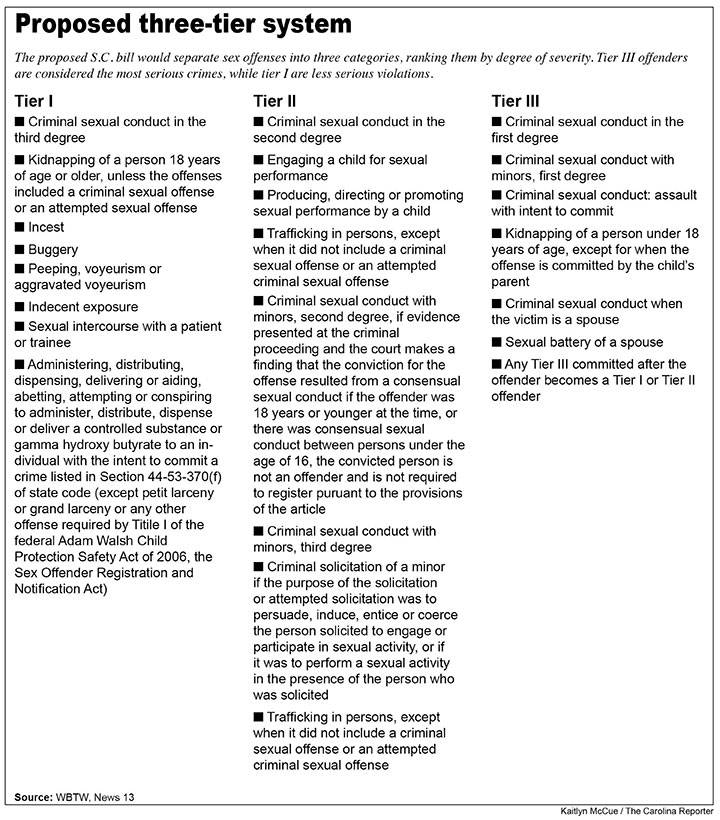The South Carolina sex offender registry currently shows all registered offenders within a three-mile radius of a given address, no matter how long ago their sentencing or offense was. Courtesy of South Carolina State Law Enforcement Division.
South Carolina legislation that aims to give registered sex offenders the option to petition the state to have their names erased from the list passed the Senate Judiciary Committee on Tuesday.
Under current law, regardless of whether a person had a sentence of probation or years of jail time, they are on the registry for their entire lives. Sen. Brad Hutto, D-Orangeburg, said the legislation “merely fixes an oversight” by correcting the current system and would potentially give lower-level offenders the right to petition for their names to be taken off the registry after an allotted time.
The bill was filed last year after a S.C. Supreme Court decision stated that the state was violating the 8th Amendment by not providing registered offenders a way off the registry. The court set a deadline of June 9 for it to be fixed.
There are roughly 17,000 registered sex offenders in the state, and if the June 9 deadline is not met, any portion of those registrants could petition the system to get off the registry, costing South Carolina taxpayers millions in court fees and hearings.
The potential predicted cost could reach up to $50 million, said Hutto, as it would include the cost of every aspect of hearings and petitions, such as public defenders, court reporters and mental health counselors.
The S.C. Senate discussed the bill in committed Tuesday, where some senators expressed concerns over the proposed system allowing petitions for restored sex offenders to be taken off the registry. Hutto, however, said the bill on its surface “deserves to be passed.”
“There are examples of folks with relatively minor offenses that really deserve an opportunity to come off because it is such a stigma,” said Charleston criminal defense attorney, Scott Bischoff. “I think it will be better for everyone as a whole as long as the law takes it seriously and we have those checks and balances in place.”
This bill takes into account people with low level offenses, like indecent exposure, or urinating in public after a night out with friends. According to Bischoff this is a fairly common offense when bars closed and no bathrooms are available.
The S.C. Association of Criminal Defense Lawyers, which Bischoff is a member of, has also taken a stand.
“We’re not saying that people who commit the most serious of sex offenses should just automatically roll off,” Bischoff said. “But we do think that everybody deserves to have a review.”
The bill now moves to the Senate floor. The legislation was passed by the House in 2021.



